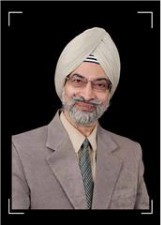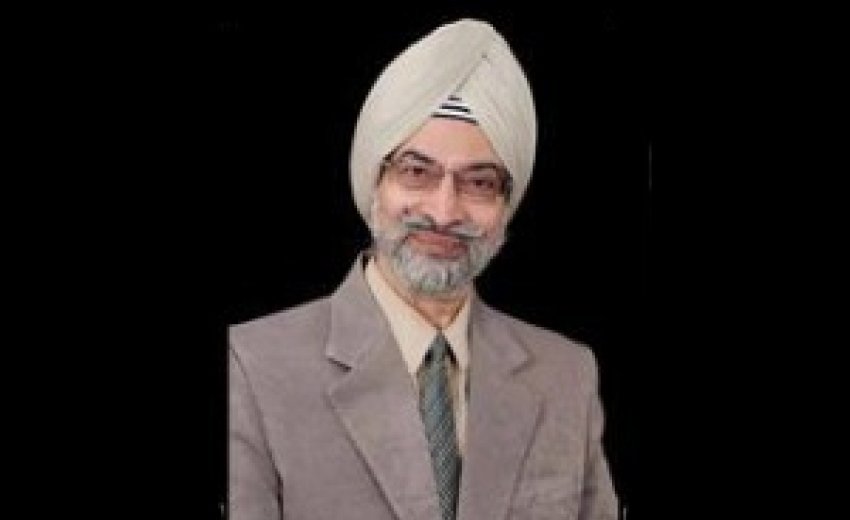Sikhs all over the world acelebrated the birth of Guru Nanak Dev Ji on 28th November. In this context, it is pertinent to discuss the contribution of Guru Nanak Dev Ji to mental health.
 When Guru Nanak Dev Ji was born about five centuries ago, Moslems were ruling over India, which had majority of Hindu population. Moslems considered themselves to be superior to Hindus. Hindus themselves were also divided basing on their castes, with priests to be superior to shudras. All this was causing a lot of tension and mental health problems in the society. Guru Nanak Dev Ji’s first sermon in 1499 AD was: “No one is Hindu or Moslem. All are children of God, so are equal.” Thus Guru Nanak Dev Ji laid the foundation of ‘Human Rights for All’ at that time. The situation is almost the same today. Compounded by modern day stresses, the superiority and inferiority complex among the human race is causing much more mental health problems than at that time.
When Guru Nanak Dev Ji was born about five centuries ago, Moslems were ruling over India, which had majority of Hindu population. Moslems considered themselves to be superior to Hindus. Hindus themselves were also divided basing on their castes, with priests to be superior to shudras. All this was causing a lot of tension and mental health problems in the society. Guru Nanak Dev Ji’s first sermon in 1499 AD was: “No one is Hindu or Moslem. All are children of God, so are equal.” Thus Guru Nanak Dev Ji laid the foundation of ‘Human Rights for All’ at that time. The situation is almost the same today. Compounded by modern day stresses, the superiority and inferiority complex among the human race is causing much more mental health problems than at that time.
Guru Nanak Dev Ji told the Qazi in Mecca that neither Hindu nor Moslem is great. It is your deeds, which make you great. It is in contrast to some religions, which think that only their religion is great and others are heathen or kafirs. This concept of one religion better than the other is also causing conflicts and its attendant mental health problems.
Guru Nanak Dev Ji taught us that we should give up our pride, ego, haumai and be humble. He said that haumai is a great disease. Most of the conflicts in the world with its attendant mental health problems are due to haumai. Many of our problems start when our pride is hurt. Ego bound individuals get stress and mental health problems and give stress and mental health problems to others. Learning to control ego, haumai, by accepting humility as prescribed by Guru Nanak Dev Ji can directly improve the mental health of the individual and the community as well. Guru Nanak Dev Ji’s humbleness is evident from the story that, when Qazi hit Guru Nanak Dev Ji with his foot for sleeping with feet towards Kaaba, Guru Nanak Dev Ji did not hit back or spoke rudely to Qazi, but told him politely to put His feet at the direction where there is no God.
Guru Nanak Dev Ji neither accepted other’s viewpoints forcibly nor forced His ideas onto others. He always reasoned and made others understand His viewpoint. For example, He did not refuse to put janeo (Sacred thread), but said that this sacred thread will get dirty and break with time and will have to be replaced. This thread will burn with body after death, O Pundit! Put such a thread which does not need to be replaced and will go with the soul after death. Here He did not accept janeo but reasoned against it. He did not force His view on Moslems that God is everywhere and not only in the direction of Kaaba. He went to Mecca with hajjis dressed like them and slept with His feet towards Kaaba. When Qazi hit Him with his foot and asked why you infidel sleeping with your feet towards Kaaba? Guru Nanak Dev Ji told him to put His feet to the direction where Qazi thinks there is no God. Here again He reasoned against their viewpoint. He used the same method when He discussed with Hindus, who were offering water to their dead ancestors. Guru Nanak Dev Ji saw Hindus offering water to their ancestors in the direction of east. He did not tell them that what they were doing was wrong, but started throwing water in the direction of west. When Hindus asked Him why was He throwing water in the direction of west, He replied, first you tell me why are you throwing water in the direction of east? They replied we are offering water to our dead ancestors who are millions of miles away in another world in the direction of rising sun. Guru Nanak Dev ji replied that I am giving water to my fields in Punjab. If your water can reach millions of miles in another world, then my water can very well reach my fields which are only few hundred miles from here in Punjab. Today again there is need to reason and not to force ideas on to others. If all of us and more so world leaders can adopt this, then many of our problems and of the world at large with their attendant mental health problems can be prevented and solved as well. This can be used at family level also. Our children want to reason about everything we do and we should explain rather forcing them. This can reduce the conflict between parents and children with its attendant mental health problems.
Guru Nanak Dev Ji was a great teacher. When He went to Mecca with others hajjis to teach them that God is not only in the direction of Kaaba, He dressed like them and talked in their language. He taught us the importance of culturally sensitive ways to deliver the services. This is again evident the way He taught Hindus in Benaras who were offering water to their ancestors.
Before Guru Nanak Dev Ji came, majority of world religions had placed women in a secondary position to men. This had been a major cause of conflict, frustration, stress and mental disorders among women. Guru Nanak Dev Ji gave women social equality and religious freedom. He said, “Why call woman low who gives birth to kings and all.”
Guru Nanak Dev Ji lived by example. Whatever He preached, He lived by that. It teaches us that we should be role models for others. We should live the life we want others to live. That is true for we as parents and as leaders in the society.
If the human race is not divided on the basis of caste, creed, color, religion and gender and there is equality of all human beings; if we can give up ego, pride, haumai and be humble as taught by Guru Nanak dev Ji, many mental health problems can be prevented. We should respect other cultures and deliver services in culturally sensitive way as prescribed by Guru Nanak Dev Ji. If everyone practiced these, wars and conflicts we are witnessing with its mental health problems could have been prevented.
These are a few of many teachings of Guru Nanak Dev Ji. The need of the day is to enable these to reach mankind all over the world.
Dr. Kala Singh did MBBS degree from Delhi University, India. He worked as Psychiatric Doctor in Africa for 21 years before immigrating to Canada. He gives Sikh religious and spiritual counseling and psychotherapy to clients with stress and mental health problems. For more information he can be contacted at 604 327 5253
